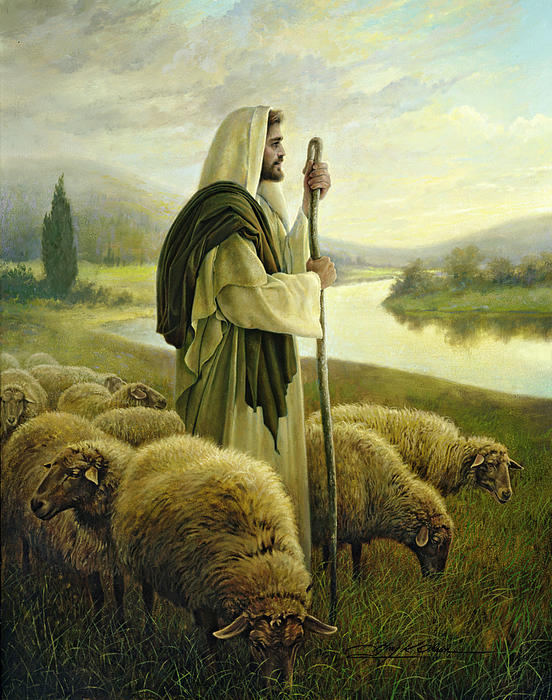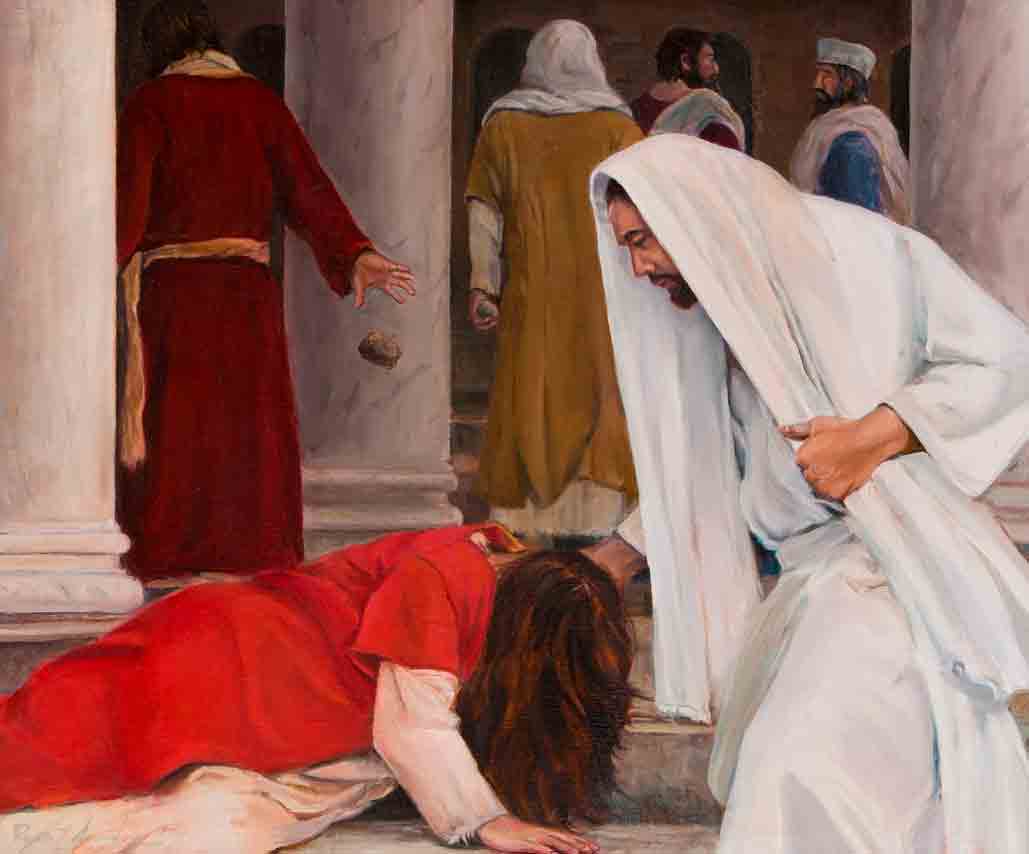To accompany your Come Follow Me study for April 24-30
In addition to reading the indicated chapters, you may wish to:
- Jesus Declares: I Am the Light of the World; the Truth Shall Make You Free at Jesus Declares: I Am the Light of the World; the Truth Shall Make You Free – YouTube
- Jesus Heals a Man Born Blind at Jesus Heals a Man Born Blind – YouTube
- The Good Shepherd and Other Sheep I Have at The Good Shepherd and Other Sheep I Have – YouTube
- The Gospel of John (from minute 57:40-1:30:32) at https://www.youtube.com/watch?v=kAAZ6HPXdMU
If you would like a Kahoot game related to this material which you could use for personal study or use with your family or your class, click here: https://create.kahoot.it/share/john-7-10/ec55dd74-f67a-4d72-88c4-a9aec275a17a. (To use it with a group, after clicking on this link, you will need to log into Kahoot, creating a free account if you have not done so previously, then click on the blue “Start” button.)
Points to Ponder in John 7-10
1. Can you find a miracle Jesus performed in John 7 and another He performed in John 8, which may not at first glance appear to be so miraculous? How do you know they were actually miracles? Where else in this week’s reading do you find what was probably a third occurrence of the same miracle?
2. What uniquely Latter-day Saint doctrine is plainly taught in John 9? What specific verse or verses would you cite and how would you use them in explaining how they establish that doctrine, which is not believed by most modern Christians?
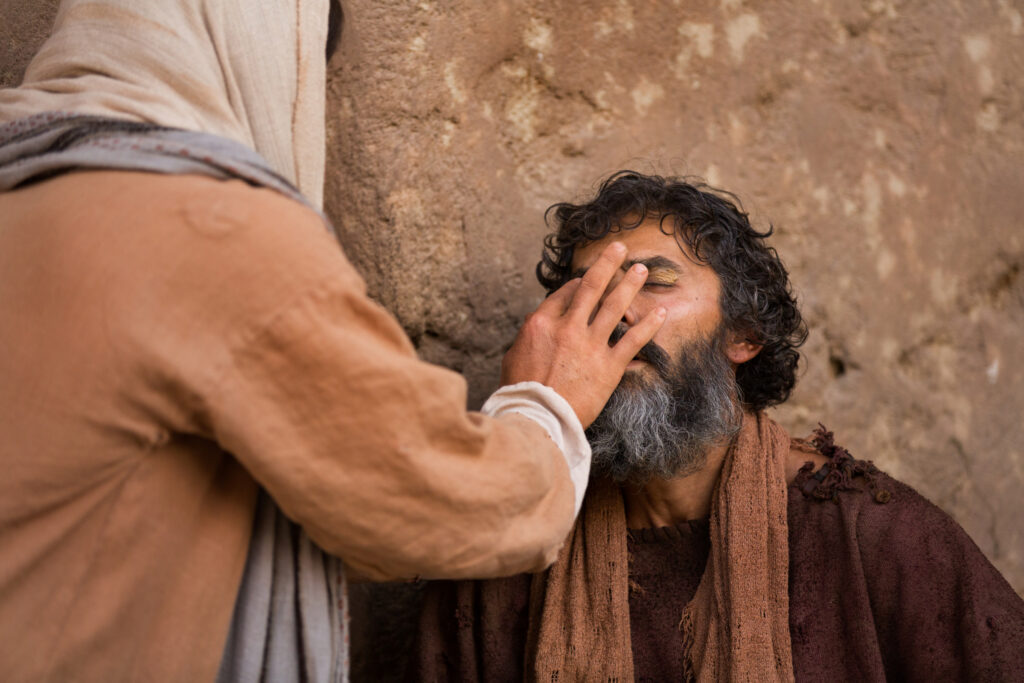
3. What passage in John 9 backs up the Latter-day Saint doctrine that baptism should not be administered to infants but to those old enough to know right from wrong? (You may have to look a bit to find this.)
4. What does Jesus mean in John 10:8 that “all that ever came before me are thieves and robbers? Were Moses, Abraham, and other ancient prophets who came before Jesus in that category?
5. How do we know John 10:16 is talking about the Nephites? How could you help a non-Latter-day Saint understand that?
6. How would you explain John 10:30, “I and my Father are one,” to someone who said that proves that God and Jesus are really the same person? What other passage from John 7-10 could you use in your answer?
7. What other uniquely Latter-day Saint doctrine is supported by John 10, and in what verse or verses? Explain.
8. A critic wonders how we can believe in our modern prophets when David O. McKay had a niece who wrote an anti‑Mormon book, Spencer W. Kimball had an inactive son, and Ezra Taft Benson had a prominent grandson who left the Church and worked against it. Certainly, he argues, if those men had prophetic powers, those closest to them should have been able to detect them. What passage in John 7-10 could you cite to answer this critic?
9. What answer, based on a passage in John 7-10, could you give to an inactive friend who refuses to come to church or participate in church activities until he can resolve some doubts he has about the truthfulness of the Church itself?
10. Someone asks you why, if The Church of Jesus Christ of Latter-day Saints is true, it isn’t bigger and more popular, and why so many people are so opposed to it. How could you use a passage in John 7-10 in your answer?
11. How could you use a passage from John 7-10 to respond to someone asks why, if Joseph Smith is really a prophet, his coming wasn’t mentioned in the Bible?
12. How could you answer a friend who cannot understand why the Church makes such a big deal out of extra‑marital sex as to excommunicate the offender? He points out that Jesus freely forgave the woman taken in adultery and said that he that was without sin should cast the first stone, implying that all of us have our own weaknesses and should not judge others until we have perfected ourselves.
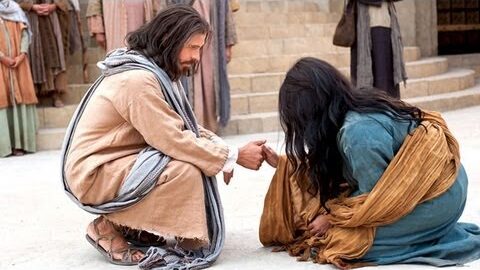
13. What, specifically, does Jesus mean when He says, “I am the light of the world”? (John 8:12.) Can you reword it and make it so clear that a middle school student could understand it?
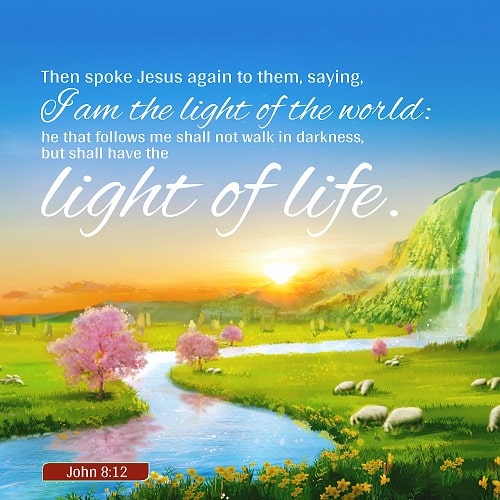
14. A friend likes many things about the Church but thinks it is too restrictive of our personal freedoms‑‑that to do everything the Church wants us to do and refrain from all of the no‑no’s would make us virtual slaves. How could you answer him, using a passage from John 7-10?
15. A member friend is reluctant to bear his testimony because, while he has strong feelings about the truthfulness of the Book of Mormon, he has some still unresolved questions about other aspects of our doctrine. What passage from John 7-10 could be helpful in encouraging him?
16. What passage in John 7-10 could you use as a spiritual thought in a teacher council meeting?
Possible Answers to Points to Ponder in John 7-10
1. Can you find a miracle Jesus performed in John 7 and another He performed in John 8, which may not at first glance appear to be so miraculous? How do you know they were actually miracles? Where else in this week’s reading do you find what was probably a third occurrence of the same miracle?
In John 7:30 we find that “they sought to take him: but no man laid hands on him, because his hour was not yet come.” The implication is clearly that Jesus escaped by miraculous means, not that the Jewish leaders were so kind as to not lay hands on Him ahead of schedule. We find a similar episode in John 8:59, when Jesus “went out of the temple, going through the midst of them, and so passed by” those who would have liked to kill Him. It appears to have again been through miraculous means in John 10:39 , when angry Jewish leaders, armed with stones, “sought again to take him,” but “he escaped out of their hand.” It would be too great a stretch of the imagination to suppose that so many irate enemies were simply too clumsy and incompetent to have apprehended the Savior, had not miraculous powers been at work.
2. What uniquely Latter-day Saint doctrine is plainly taught in John 9? What specific verse or verses would you cite and how would you use them in explaining how they establish that doctrine, which is not believed by most modern Christians?
See John 9:2. If there were no pre-mortal life, we would certainly expect Jesus to correct a major misconception on the part of his disciples. Instead, He seems to grant the possibility of pre-mortal sin but indicates that in this case it was not the reason for the man’s handicap.
3. What passage in John 9 backs up the Latter-day Saint doctrine that baptism should not be administered to infants but to those old enough to know right from wrong? (You may have to look a bit to find this.)
John 9:41 says that those who are figurately “blind,” would not be guilty of sin. That would certainly include little children. And Acts 2:38 clearly teaches that baptism is for the remission of sins.
4. What does Jesus mean in John 10:8 that “all that ever came before me are thieves and robbers? Were Moses, Abraham, and other ancient prophets who came before Jesus in that category?
See footnote “a” which leads us to an explanation that in the Joseph Smith Translation Jesus clarifies that it is those who came before him “who testified not of me” that were the thieves and robbers. All the ancient true prophets testified of the Christ who was to come.
5. How do we know John 10:16 is talking about the Nephites? How could you help a non-Latter-day Saint understand that?
We know it first of all because Jesus clearly said as much to the Nephites in 3 Nephi 15:21. Secondly, it is clear from the fact that Jesus Himself said His mission at that time was limited to the “lost sheep of the house of Israel.” (Matthew 15:24.) Only after a special revelation was given to Peter in Acts 10 was the gospel taken specifically to the Gentiles.
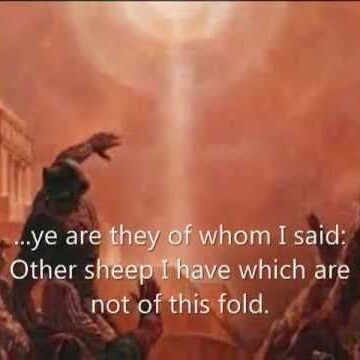
6. How would you explain John 10:30, “I and my Father are one,” to someone who said that proves that God and Jesus are really the same person? What other passage from John 7-10 could you use in your answer?
John 8:17-18 says plainly that God and Jesus are separate beings, adding up to a total of two. John 10:30, of course, is speaking of a oneness of purpose, not an identity of personage. In John 17:21-23, Jesus prays that His disciples may be “one” in the same sense in which He and His Father are one. Those who insist that John 10:30 proves that God and Christ are only one individual seldom are prepared to argue that in either this life or the next we are all destined to become the same person!
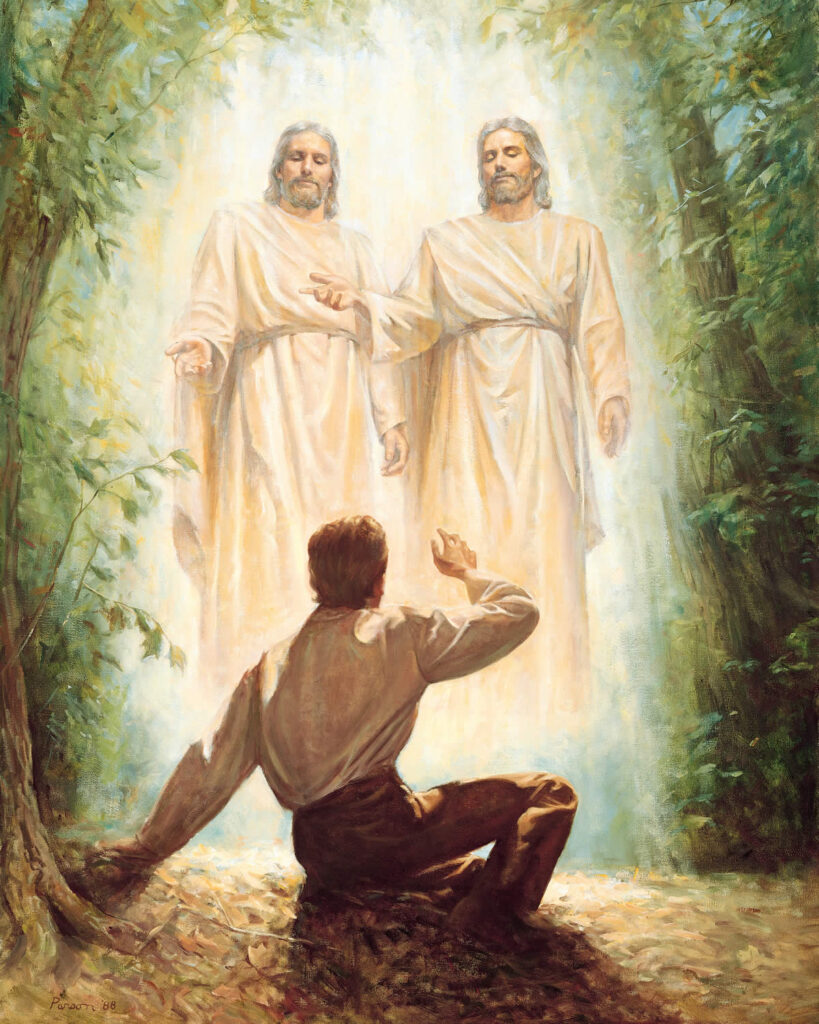
7. What other uniquely Latter-day Saint doctrine is supported by John 10, and in what verse or verses? Explain.
Latter-day Saints are virtually alone among Christian denominations in teaching that man has the potential to become like his Creator. But the passage Jesus quotes from Psalms in John 10:34 (and for which He was criticized as much as Latter-day Saints are today for saying the same thing), clearly implies that men and women are gods and goddesses in embryo.
8. A critic wonders how we can believe in our modern prophets when David O. McKay had a niece who wrote an anti‑Mormon book, Spencer W. Kimball had an inactive son, and Ezra Taft Benson had a prominent grandson who left the Church and worked against it. Certainly, he argues, if those men had prophetic powers, those closest to them should have been able to detect them. What passage in John 7-10 could you cite to answer this critic?
John 7:5. Some of Jesus’ closest associates, including His blood brothers, couldn’t detect His divinity!
9. What answer, based on a passage in John 7-10, could you give to an inactive friend who refuses to come to church or participate in church activities until he can resolve some doubts he has about the truthfulness of the Church itself?
John 7:17. You resolve those doubts by keeping the commandments, which includes church activity! Acting as one would act who believed the gospel to be true brings the Spirit, with its convincing and converting power. Those who refuse to obey until they know for sure will never know.
10. Someone asks you why, if The Church of Jesus Christ of Latter-day Saints is true, it isn’t bigger and more popular, and why so many people are so opposed to it. How could you use a passage in John 7-10 in your answer?
See John 7:48. They used the same argument against Jesus! Also, John 7:24 suggests judging not according to the appearance.
11. How could you use a passage from John 7-10 to respond to someone asks why, if Joseph Smith is really a prophet, his coming wasn’t mentioned in the Bible?
John 7:52 shows they used the same argument against Jesus. There was no prophecy of a great prophet to come out of Galilee, nor any great tradition of their having done so in the past. Ironically, their argument that Jesus couldn’t be the Messiah because the Messiah was supposed to come from Bethlehem showed their willful ignorance of Jesus’ early life. Similarly, Joseph Smith’s mission really is foretold in the Bible, if one knows where to look for it. E.g., Malachi 3:1, Revelation 14:6-7, Isaiah 29:12, Ezekiel 37:16-20.
12. How could you answer a friend who cannot understand why the Church makes such a big deal out of extra‑marital sex as to excommunicate the offender? He points out that Jesus freely forgave the woman taken in adultery and said that he that was without sin should cast the first stone, implying that all of us have our own weaknesses and should not judge others until we have perfected ourselves.
John 8:7-11, if read carefully, does not say Jesus forgave the woman at that point. He simply refused to condemn her without competent testimony against her, and He pointed her onto the road to repentance and eventual forgiveness.
13. What, specifically, does Jesus mean when He says, “I am the light of the world”? (John 8:12.) Can you reword it and make it so clear that a middle school student could understand it?
Those who follow Jesus will have His Spirit to be with them so that they can see and understand things more clearly than those without that Spirit and have a joy and happiness unknown to others.
14. A friend likes many things about the Church but thinks it is too restrictive of our personal freedoms‑‑that to do everything the Church wants us to do and refrain from all of the no‑no’s would make us virtual slaves. How could you answer him, using a passage from John 7-10?
See John 8:31-34. Obedience is really the key to freedom! Obedience keeps us free from sin and its consequences, free of guilt, and qualifies us to have the spirit and power of the Lord, which gives us yet greater freedom.

15. A member friend is reluctant to bear his testimony because, while he has strong feelings about the truthfulness of the Book of Mormon, he has some still unresolved questions about other aspects of our doctrine. What passage from John 7-10 could be helpful in encouraging him?
John 9:25 shows that we don’t have to know everything to be able to bear witness of what we do know.
16. What passage in John 7-10 could you use as a spiritual thought in a teacher council meeting?
There are multiple good options here. One would be John 10:1-15 about the good shepherd, how he loves, cares for, and puts himself out for his sheep, as teachers should do for their students.
